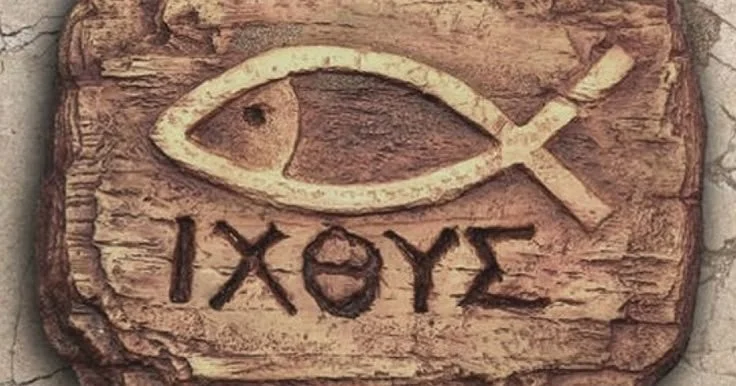This past week, as I was preparing a sermon from Acts 2:42–47, one of the books I read prompted me to think more deeply about the word “Christian.” In the early days of the Church, such as the community described in Acts 2:42–47, followers of Jesus were not yet called Christians. Instead, they were known by terms like “followers of Jesus,” “disciples,” or “believers.” The first recorded use of the word “Christian” to describe Christ’s followers appears in Acts 11:26, which states, “The disciples were called Christians first at Antioch.”
Interestingly, it seems the followers of Jesus did not initially choose this term themselves. Instead, it was likely coined by non-believers, perhaps even as a derogatory label rather than a term of honour or respect. Nevertheless, the early church embraced the name, and over time it became the primary designation used by both Christians and non-Christians alike.
But what does the word “Christian” actually mean? In Acts 11:26, the Greek word translated as “Christian” is Χριστιανός (Christianos), which, according to Thayer’s Greek Lexicon, means "a Christian, a follower of Christ." This term appears only three times in the New Testament: Acts 11:26, Acts 26:28, and 1 Peter 4:16. Thayer further notes, “The name was first given to the worshippers of Jesus by the Gentiles, but from the second century onward it was accepted by them as a title of honour.” The Topical Lexicon adds that this term was first applied in the cosmopolitan, Gentile-rich city of Antioch, marking a significant moment when the followers of Jesus gained a distinct and recognisable public identity separate from Judaism, yet rooted in Israel’s Messiah.
The Topical Encyclopedia on the Biblehub website provides insightful reflections on the meaning of “Christian,” which I’d like to share in the hope that they bless your heart as they have blessed mine:
“The identity of a Christian is deeply rooted in the New Testament, where the life, death, and resurrection of Jesus Christ are central. Christians believe in the divinity of Jesus, His atoning sacrifice for sin, and His resurrection, which offers eternal life to believers. The Apostle Paul emphasises the transformative power of being a Christian: ‘Therefore, if anyone is in Christ, he is a new creation. The old has passed away; behold, the new has come!’ (2 Corinthians 5:17).
“Christians are called to live according to the teachings of Jesus, which include love, forgiveness, and service to others. The Great Commandment, as stated by Jesus, is foundational: ‘Love the Lord your God with all your heart and with all your soul and with all your mind,’ and ‘Love your neighbour as yourself’ (Matthew 22:37–39). Additionally, Christians are encouraged to exhibit the fruit of the Spirit: love, joy, peace, patience, kindness, goodness, faithfulness, gentleness, and self-control (Galatians 5:22–23).
“Christians gather in communities known as churches, where they engage in worship, prayer, and the study of Scripture. The early church, as described in Acts, provides a model for Christian fellowship: ‘They devoted themselves to the apostles’ teaching and to fellowship, to the breaking of bread and to prayer’ (Acts 2:42). This communal aspect is vital for spiritual growth and mutual support.
“A core aspect of the Christian faith is the Great Commission, where Jesus instructs His followers to spread the gospel: ‘Go therefore and make disciples of all nations, baptising them in the name of the Father and of the Son and of the Holy Spirit’ (Matthew 28:19). Evangelism and mission work are seen as essential duties for Christians, aimed at sharing the message of salvation through Christ.
“Throughout history, Christians have faced persecution for their beliefs. The New Testament acknowledges this reality and encourages believers to remain steadfast: ‘Indeed, all who desire to live a godly life in Christ Jesus will be persecuted’ (2 Timothy 3:12). Despite challenges, Christians are called to endure faithfully, trusting in God’s promises.
“Christians also hold an eschatological hope in the return of Jesus Christ and the establishment of God’s eternal kingdom. This hope is a source of encouragement and motivation for living a God-honouring life. The Apostle Paul writes, ‘For the grace of God has appeared, bringing salvation to all men. It instructs us to renounce ungodliness and worldly passions, and to live sensible, upright, and godly lives in the present age, as we await the blessed hope and glorious appearance of our great God and Saviour Jesus Christ’ (Titus 2:11–13)."
In conclusion, the Topical Encyclopedia beautifully summarises:
“The identity and life of a Christian are defined by a relationship with Jesus Christ, adherence to His teachings, and participation in the community of believers. Christians are called to live out their faith through love, service, and proclamation of the gospel, all while holding onto the hope of Christ’s return.”
Friends, my prayer for you today is this: if you do not yet know Jesus Christ as your Lord and Saviour, may you come to that saving knowledge today and find assurance in your heart that you are a beloved child of God. And if you already are a child of God, may you remain strong in your faith, unshaken by life’s storms and trials, dedicating your life and resources to serving Christ’s kingdom and the Church He is establishing in this world.
May the Lord richly bless you!
